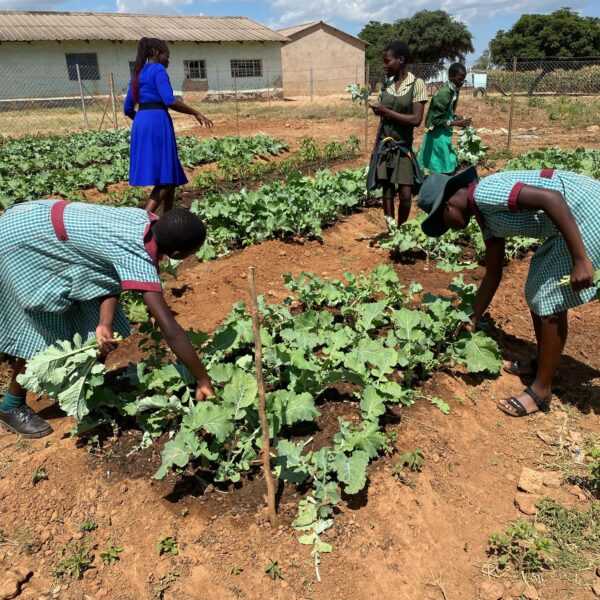PROFARMER SCHOOLS GARDEN PROJECTS FY25 (Q1-Q3)
The Profeeds Profarmer Gardens Project continues to expand its footprint and impact, reaching more schools and communities with each passing month.
To date, 48 schools across Zimbabwe have been launched into the project, with 9 more expected by June 2025. Each garden runs for a 3–4 month cycle, ideally aligned with the school term. The students are engaged from land preparation through to harvest — gaining critical technical knowledge while also learning responsibility, teamwork, and environmental stewardship.
Launched in February 2024, the initiative provides both students and teachers with practical, hands-on exposure to sustainable agriculture, backed by expert training and support from Profarmer branches. After the initial setup and training period, each participating school is expected to sustain future planting cycles independently by purchasing inputs from their designated partner Profarmer branch.
At its core, the Schools Garden Project is designed to inspire, empower, and uplift. It seeks to show Zimbabwe’s educational institutions the transformative potential of agriculture; to equip them with the skills and knowledge needed to succeed; and to champion sustainability as a critical pathway for community, national, and global resilience.

Project details
- Adbernie School Garden Projects
- Adbernie
Adbernie School Garden Project
Educational and Practical Benefits
The Profeeds Profarmer Gardens Project continues to bridge the gap between classroom theory and real-world application. Students are actively involved in every stage of the agricultural cycle—from planning and preparing land to monitoring crop growth and managing harvests.
Through this hands-on approach, they learn to apply essential concepts such as soil health management, efficient irrigation practices, and integrated pest control.
Each school receives ongoing support from Profarmer’s agronomy team, who provide tailored mentorship and technical assistance. The inclusion of seasonal crop rotation, composting, and nutrient planning deepens students’ understanding of sustainable agriculture. By working directly with seeds, seedlings, fertilisers, and natural pest solutions, learners gain a practical foundation that equips them for future farming or agribusiness ventures.
This program not only builds knowledge but also fosters confidence, teamwork, and problem-solving skills, empowering students to see agriculture as a viable and rewarding career path.

Project details
- Dingu Primary School
Dingu Primary School : School Garden Project
The initiative has achieved remarkable success, with 55% of the school projects now fully sustainable. These schools have reinvested their profits to sustain and expand their projects, thriving under the effective management of both students and staff.The projects support local consumption, generate income for school operations, and extend donations to vulnerable groups, reinforcing the program’s social and economic value.
A shining example of this success is Chimanikire Primary School in Guruve. The school’s garden is thriving, with pepper plants already fruiting and the first full harvest expected shortly. Income from produce sales has begun to flow in, demonstrating the garden’s economic potential. With strong backing from the School Development Council (SDC)—who donated fencing materials (covering 1,800 square meters) and drilled a second borehole—the school has ensured reliable water access and secured the project’s long-term viability. The garden has since expanded to include onions, tsunga, carrots, green beans, spinach, and beetroot, with future plans for cabbages.
Beyond income generation, Chimanikire’s impact reaches into the community. The school regularly supports less privileged learners with produce for home use and sells surplus vegetables to local families, fostering both food security and social cohesion.
We are incredibly proud of the commitment shown by the students, staff, and community—a true reflection of what’s possible when we invest in sustainable school agriculture.
Chimanikire Primary School 2nd Harvest
10 April 2025


